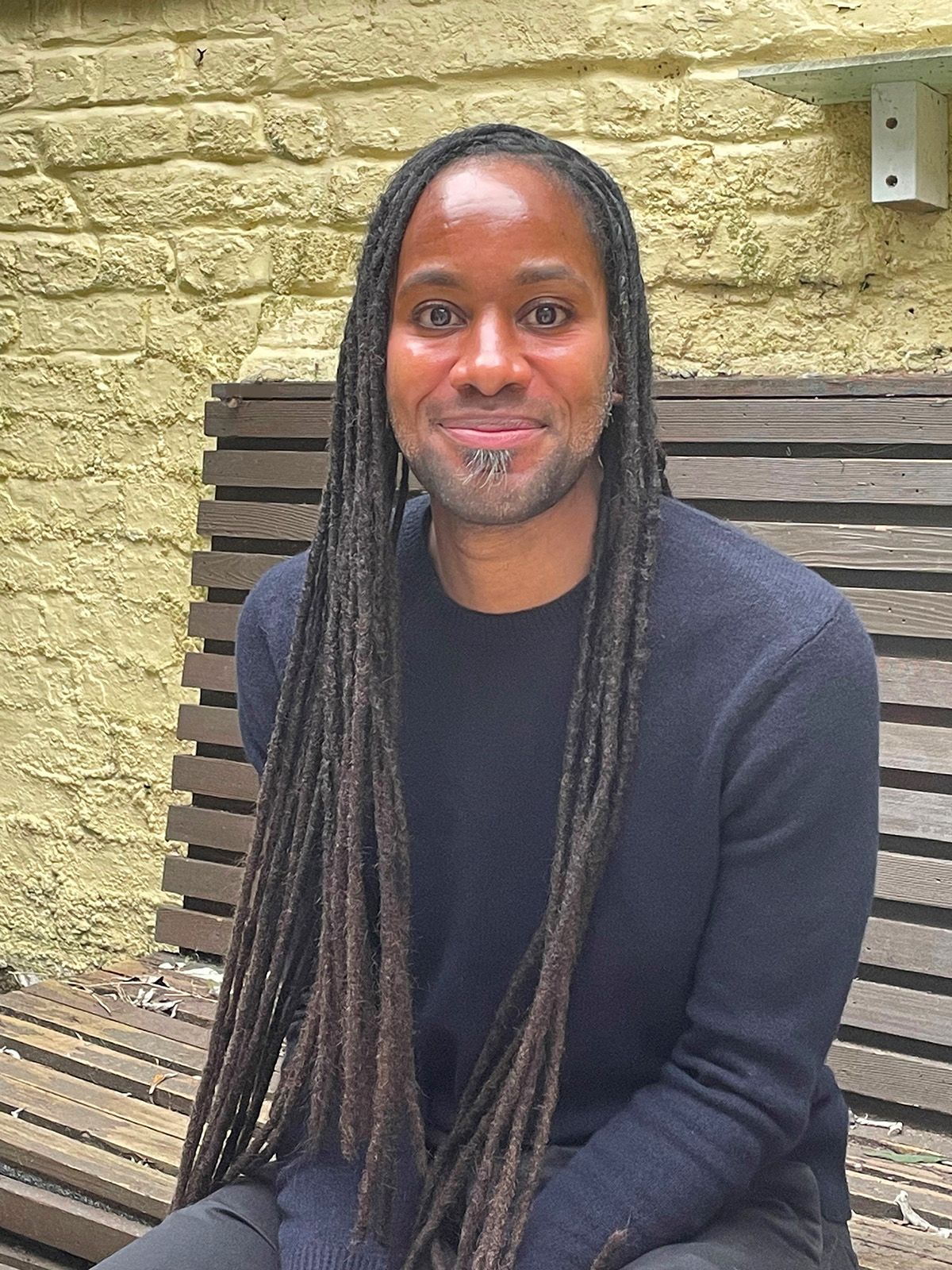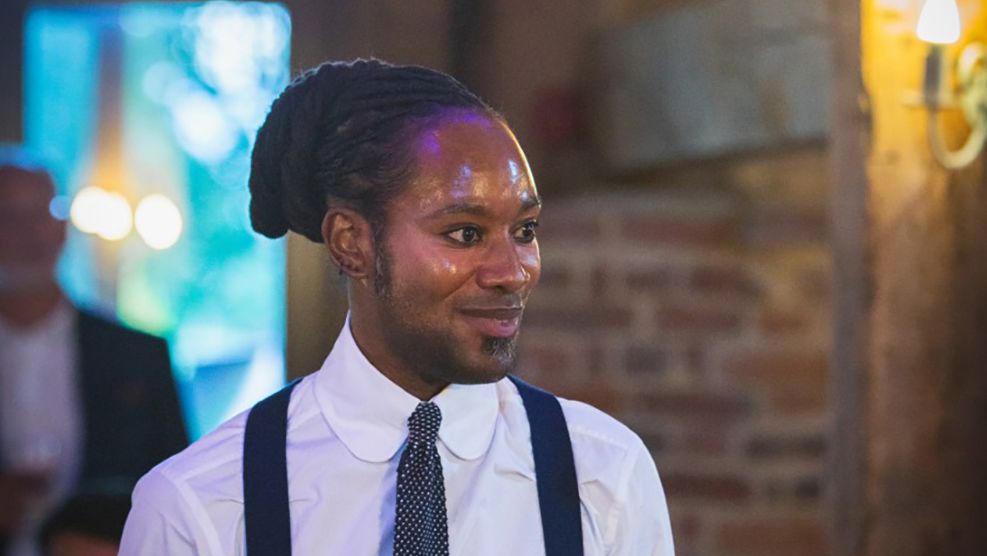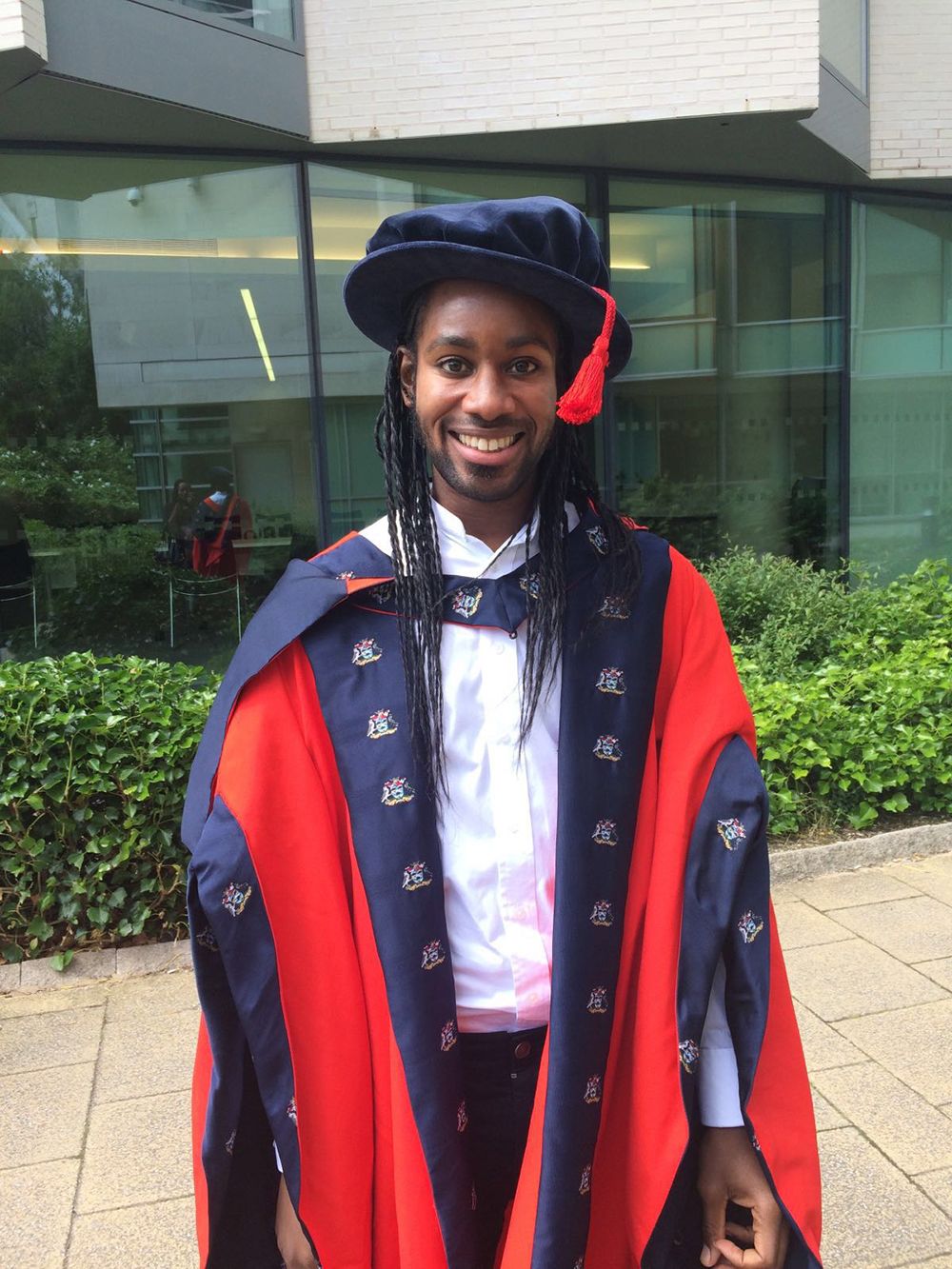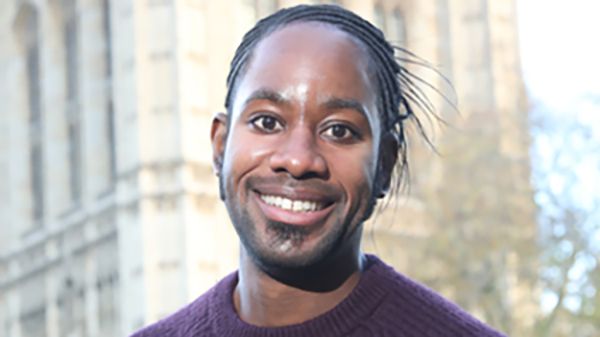

Jason Arday appointed Professor of Sociology of Education at University of Cambridge

The renowned sociologist, Jason Arday, is to become a professor at the University of Cambridge: the latest chapter in a remarkable academic career, which began after he overcame illiteracy in his late teens.

Arday is a highly respected scholar of race, inequality and education, with a particular interest in improving the representation of Black, Asian and Minority Ethnic people in higher education. He will take up the post of Professor of Sociology of Education in the Faculty of Education, University of Cambridge, on 6 March.
At 37, he will be the youngest Black person ever appointed to a professorship at Cambridge – a platform he intends to use to inspire more people from under-represented backgrounds into higher education, building on the university’s many initiatives in this area.
It is a commitment rooted in experience. Arday has faced many personal challenges – notably being diagnosed, at the age of three, with a form of Autism Spectrum Disorder which meant he was unable to speak until he was 11, or to read or write until he was 18. Other parts of his story, however, epitomise the significant barriers that neurodivergent individuals, those from lower socio-economic backgrounds, and Black, Asian and Minority Ethnic people face when trying to build careers in the sector.
Arday was born and raised in Clapham, South London. Therapists and career advisers predicted he would spend his adult life in assisted living and require lifelong support. Instead, through personal determination and the support of family and close friends, he went to college, trained as a teacher, and then launched his academic career.
At 27, while studying for his PhD, he wrote a set of personal goals on a bedroom wall at his parents’ home. One of these read: “One day I will work at Oxford or Cambridge”.
Cambridge has achieved some notable gains in attempting to diversify the landscape, but there is so much more to be done – here and across the sector
“My work focuses primarily on how we can open doors to more people from disadvantaged backgrounds and truly democratise higher education,” Arday said. “Hopefully being in a place like Cambridge will provide me with the leverage to lead that agenda nationally and globally.”
“Talking about it is one thing; doing it is what matters. Cambridge is already making significant changes and has achieved some notable gains in attempting to diversify the landscape, but there is so much more to be done – here and across the sector.”
As a child, Arday’s mother played a critical role developing his self-confidence and skills, in particular by introducing him to a wide range of music. Her hope was that this would aid his conceptualisation of language, but it also kick-started a lifelong interest in popular culture that has characterised some of his research.
He finally began to read and write in his late teens, supported by his mentor, college tutor and close friend, Sandro Sandri. He then studied Physical Education and Education Studies at the University of Surrey before training as a PE teacher. During this time, he became aware of the possibility of postgraduate study, and at 22 told Sandri that he was considering a PhD.
He remembers that conversation as a turning point. “Sandro told me: ‘I think you can do this: I think we can take on the world and win.’ Looking back, that was when I first really believed in myself. A lot of academics say they stumbled into this line of work, but from that moment I was determined and focused: I knew that this would be my goal.”
Arday went on to acquire two Masters qualifications and a PhD in educational studies.
He traces his academic interest in race, education and society back to his childhood. Some of his early memories involve being inspired watching Nelson Mandela’s release on television and South Africa’s symbolic triumph in the 1995 Rugby World Cup. Growing up in a disadvantaged area and then working as a teacher also gave him first hand insights into the systemic inequalities that Black, Asian and Minority Ethnic students often face in education.
In 2015, while still a doctoral student, he co-edited, with Professor Claire Alexander (University of Manchester), the Runnymede Trust’s landmark report, Aiming Higher, which spotlighted racial and ethnic inequality in British universities and its relationship with wider social issues.
Learning to become an academic, however, was very difficult, particularly because he had little practical training or guidance about how to do it. By day, Arday worked as a PE lecturer, while dedicating endless evenings and hundreds of hours to drafting academic papers, studying sociology, watching videos of lectures, and attempting to master his discipline and recite content verbatim.

Jason at his PhD ceremony (Liverpool John Moores) in 2016
Jason at his PhD ceremony (Liverpool John Moores) in 2016
“When I started writing academic papers, I had no idea what I was doing,” he said. “I did not have a mentor and no-one ever showed me how to write. Everything I submitted got violently rejected. The peer review process was so cruel, it was almost funny, but I treated it as a learning experience and, perversely, began to enjoy it.”
He eventually published his first paper in 2018. The same year, he successfully secured a Senior Lectureship at Roehampton University before moving on to Durham University, where he was an Associate Professor of Sociology. In 2021, Arday became a Professor of Sociology of Education at the University of Glasgow’s School of Education, making him, at the time, one of the youngest professors in the UK.
He has established himself as a leading scholar in his field, publishing extensively on subjects including the experiences of Black students in universities, the under-representation of ethnic minority people in academic careers, and the long-term impacts of racial discrimination in education. Throughout his career, he has committed himself to helping as many ethnic minority and under-represented people as possible gain access to opportunities within the sector.
He has also sole-authored and co-written several books, including works that explore the roots of structural racism in higher education, and the ‘Cool Britannia’ phenomenon of the 1990s from an ethnic minority perspective.
Arday is a trustee of the Runnymede Trust (the UK’s leading race equality think-tank) and the British Sociological Association; a Senior Fellow of the Higher Education Academy, and a Fellow of the Royal Society of Arts. He has been called on by numerous organisations including the Government of the UK, and the Scottish and Welsh Parliaments, to help develop anti-racism strategies.
The University has some amazing people and resources; the challenge is how we use that capital to improve things for everyone and not just a few

Through his work at Cambridge, he will continue to pursue his long-standing commitment to research and practice which promotes greater inclusivity in the academic community. His portfolio of current research projects spans various subjects which intersect with race and education.
He is co-authoring a book with Dr Chantelle Lewis (University of Oxford) about the challenges and discrimination faced by neurodiverse populations and students of colour. He is also working on a programme to support the mental health of young people from ethnic minority backgrounds, and researching the role of the arts and cultural literacy in effective mental health interventions. On top of this, Arday is writing a book about Paul Simon’s 1986 album, Graceland, focusing on the ethical dilemmas the singer-songwriter confronted by breaking cultural apartheid in South Africa to involve marginalised Black communities in its production.
A major focus of his work will be supporting Cambridge’s wider efforts to recruit a more diverse range of students and staff. He is complimentary about initiatives such as the expanding ‘Get In’ programme for ethnic minority students from less-wealthy backgrounds, the Stormzy scholarships for Black UK students, and efforts to tackle the “offer gap”.
He warns against complacency, however, and sees the task of building a more representative university as one requiring an ongoing, collective effort. “Obviously unpicking a long history in which Cambridge has been, or seemed, very exclusive is difficult,” he said. “There are now lots of pockets of good practice, but culturally this needs to extend throughout the entire university.”
He also believes that Cambridge’s international standing means it could, and should, “lead the way as an inclusive space”. “The University has some amazing people and resources; the challenge is how we use that capital to improve things for everyone and not just a few,” Arday added. “Doing this right is an art: it requires real diplomacy and everyone has to feel inspired to work together. If we want to make education more inclusive, the best tools we have are solidarity, understanding and love.”
Welcoming the appointment, Professor Bhaskar Vira, Pro-Vice-Chancellor for Education at the University of Cambridge, said: "Jason Arday is an exceptional scholar of race, inequality and education. He will contribute significantly to Cambridge’s research in this area and to addressing the under-representation of people from socio-economically disadvantaged backgrounds: especially those from Black, Asian, and other Minority Ethnic communities."
"His experiences highlight the barriers faced by many under-represented groups across higher education and especially at leading universities. Cambridge has a responsibility to do everything it can to address this by creating academic spaces where everyone feels they belong."
"We are making extensive efforts in this regard – including the expansion of the ‘Get In Cambridge’ programme which provides financial support to address systemic disadvantages and the lack of social and educational capital which often constrains the ability of minority ethnic students to continue with their education. A great deal remains to be done and Jason’s expertise will inform and enhance these ongoing endeavours."
Images in this story: Faculty of Education / Jason Arday